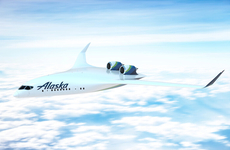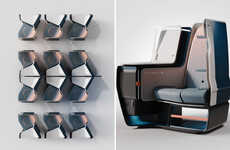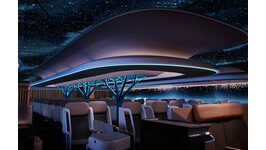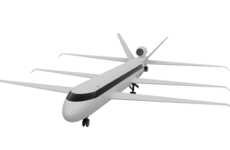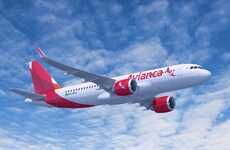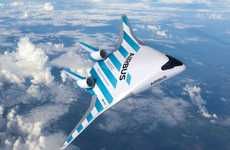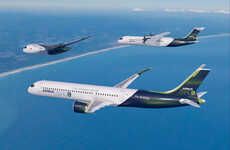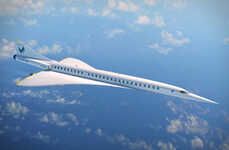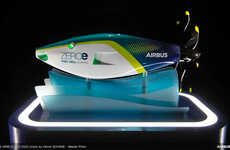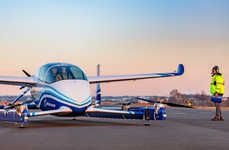
KLM Airlines is Increasing Efficiency by Adding In-Wing Seating
Daniel Johnson — June 5, 2019 — Eco
References: youtu.be & techcrunch
KLM Airlines is looking at in-wing seating in order to increase efficiency. Air travel accounts for a significant number of greenhouse gas emissions, being able to transport more people at once would reduce the number of flights needed as well as being more cost effective for the airline. This model would be 20% more fuel efficient than its Airbus A350 counterpart. The 20% reduction in fuel used on a global scale would have a very large impact on reducing emissions from air travel.
The airline is not looking to immediately roll out the in-wing seating planes, a rough estimate is that the planes could be ready between 2040 and 2050. However, the Airline has stated that testing will start on scale models this year.
The airline is not looking to immediately roll out the in-wing seating planes, a rough estimate is that the planes could be ready between 2040 and 2050. However, the Airline has stated that testing will start on scale models this year.
Trend Themes
1. In-wing Seating - The adoption of in-wing seating in airplanes presents a disruptive innovation opportunity to increase efficiency and reduce greenhouse gas emissions in the air travel industry.
2. Increased Fuel Efficiency - The focus on developing jet designs with increased fuel efficiency offers a disruptive innovation opportunity to lower costs and minimize environmental impact in the aviation industry.
3. Airline Sustainability - The pursuit of sustainable practices, such as developing more efficient jet designs, presents a disruptive innovation opportunity for airlines to align with environmental goals and reduce their carbon footprint.
Industry Implications
1. Aviation Industry - The aviation industry can explore and embrace in-wing seating and increased fuel efficiency in jet designs to enhance operational efficiency and reduce environmental impact.
2. Aircraft Manufacturing Industry - The aircraft manufacturing industry can capitalize on the demand for more fuel-efficient jet designs, including in-wing seating, by developing innovative aircraft technologies and components.
3. Environmental Technology Industry - The environmental technology industry can contribute to the development and implementation of sustainable solutions, such as in-wing seating and increased fuel efficiency, to support the air travel industry in achieving its environmental goals.
1.9
Score
Popularity
Activity
Freshness


